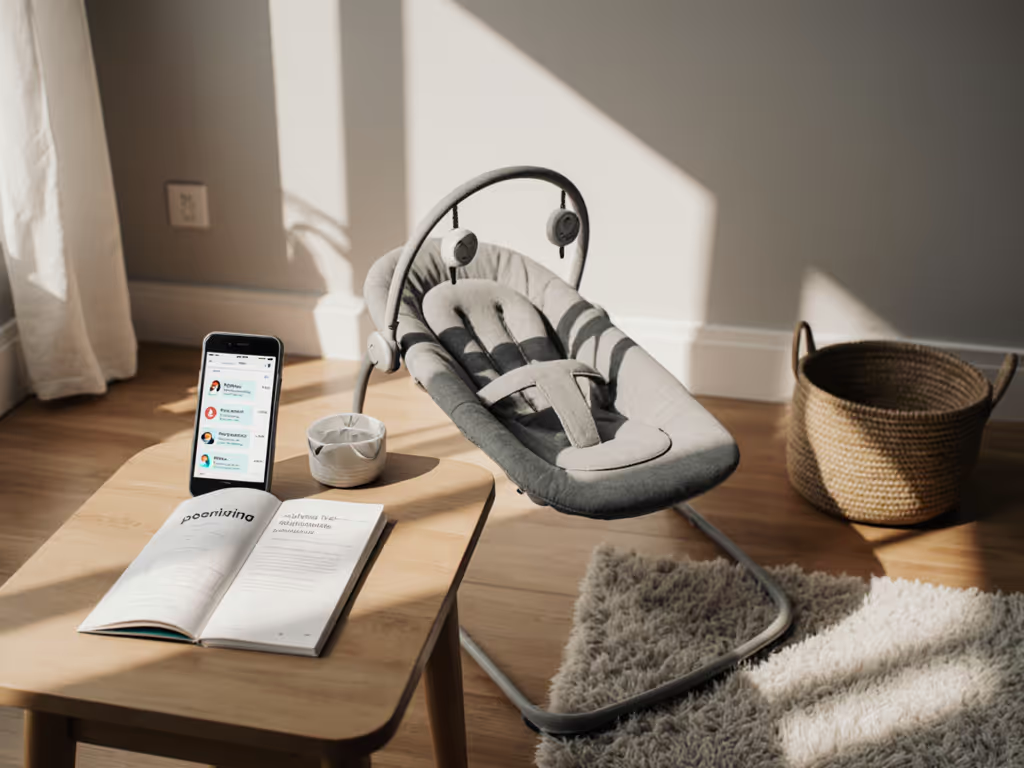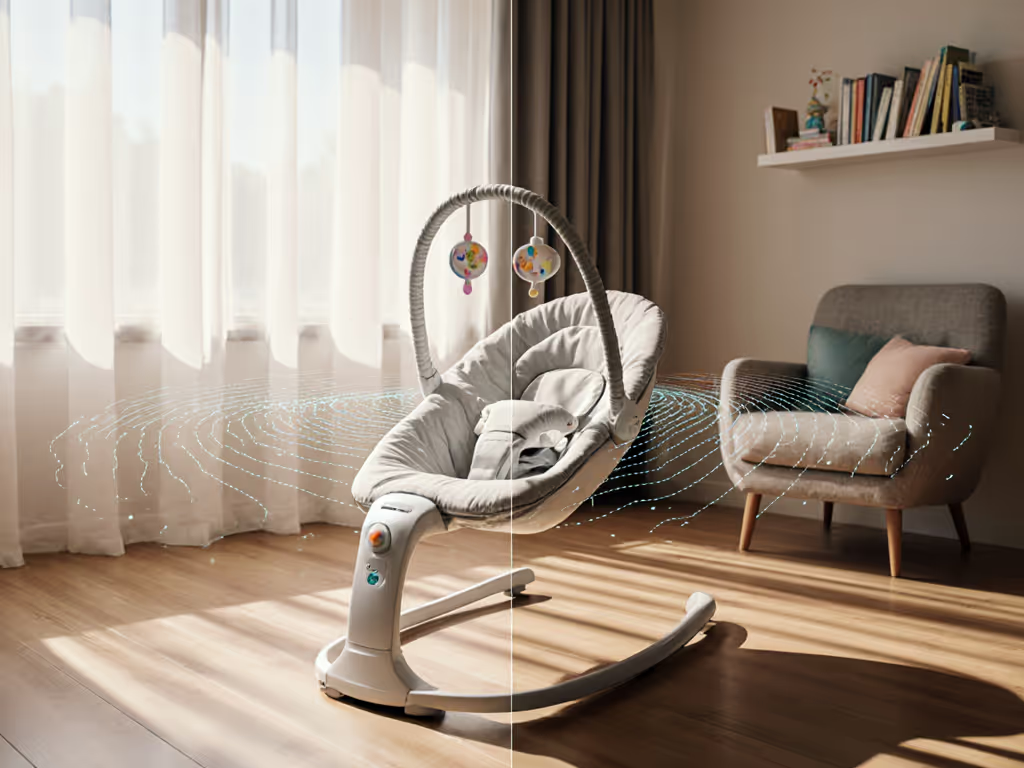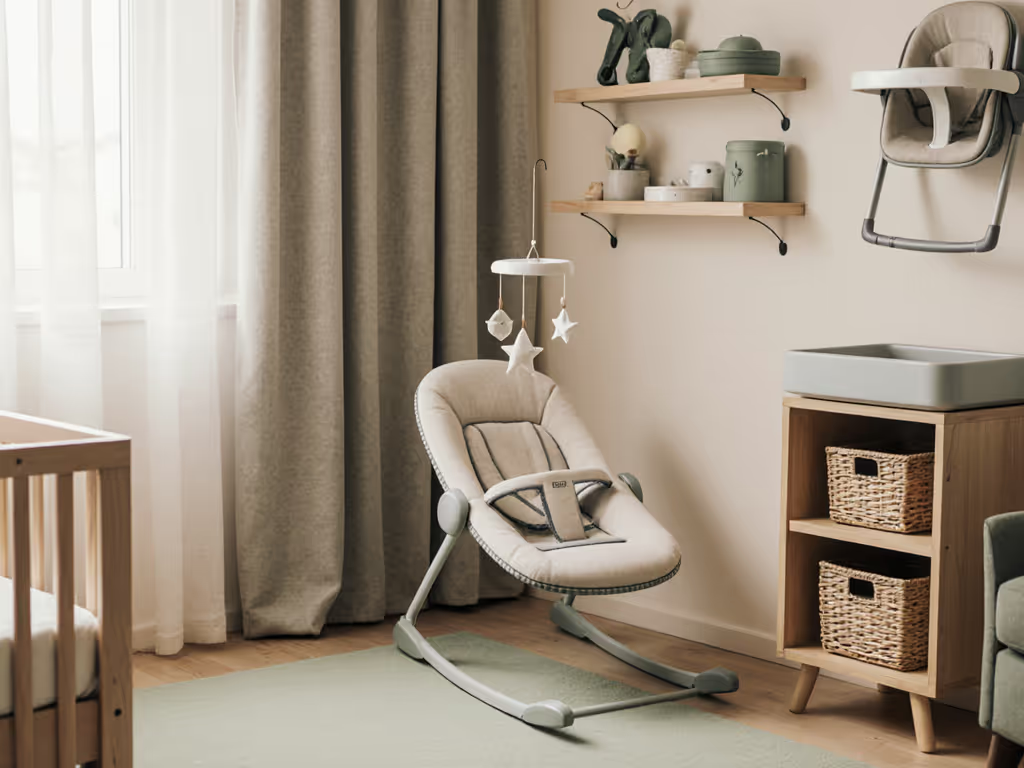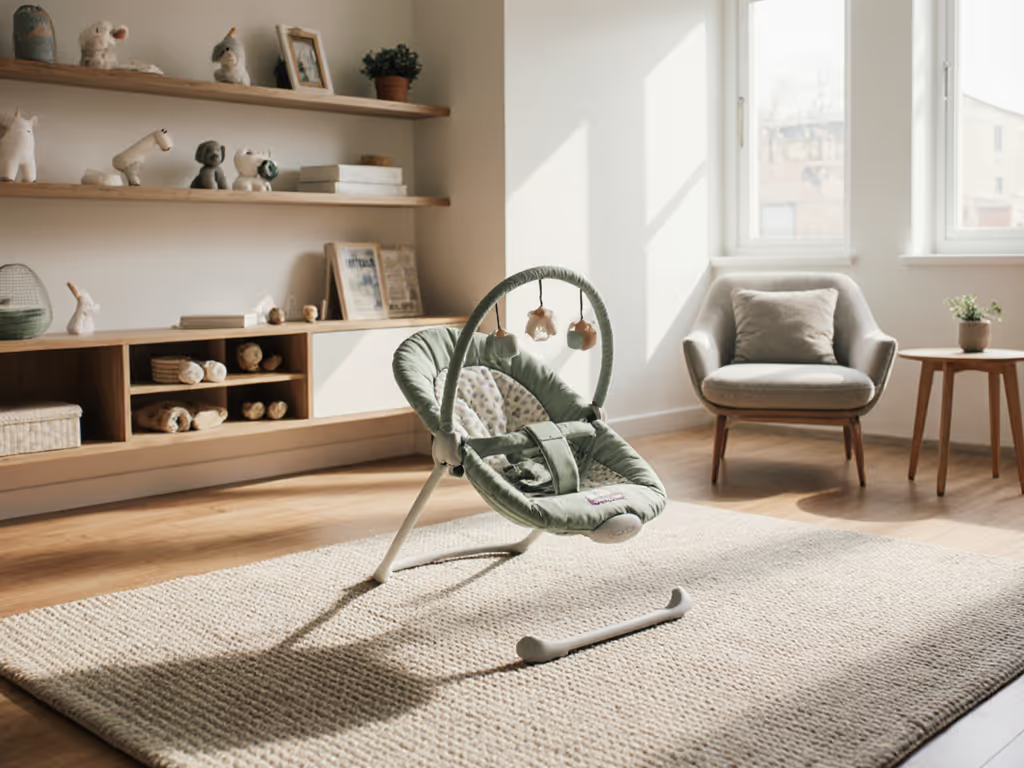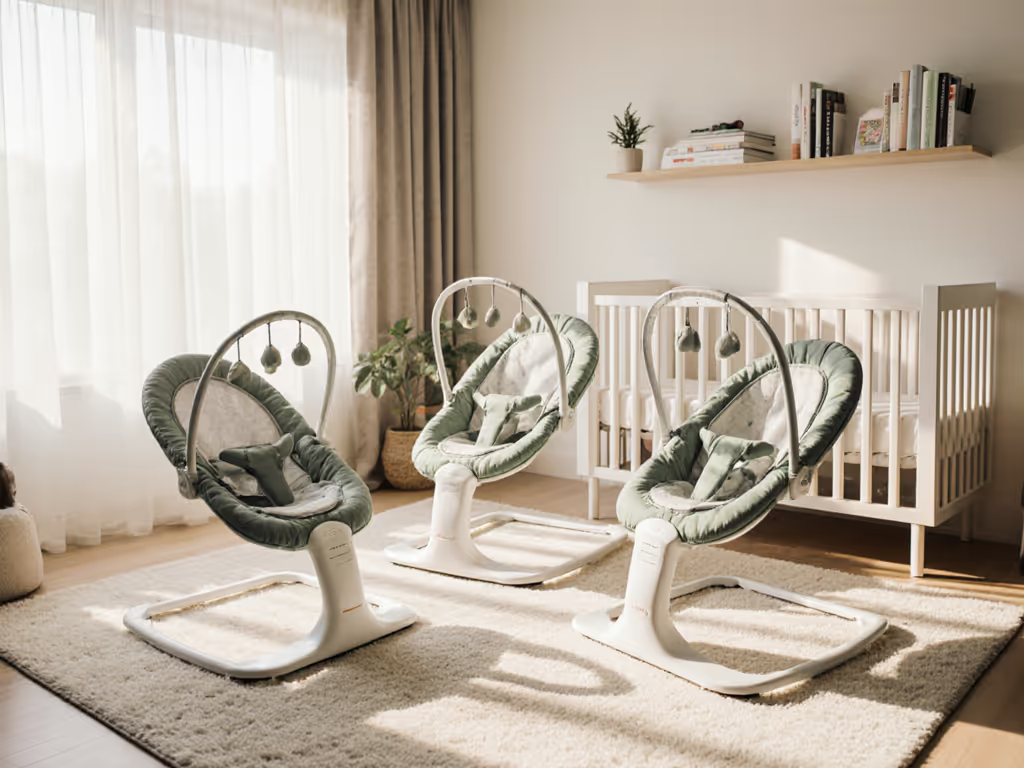
Eco Baby Bouncer FAQ: Small, Silent, Safe Picks
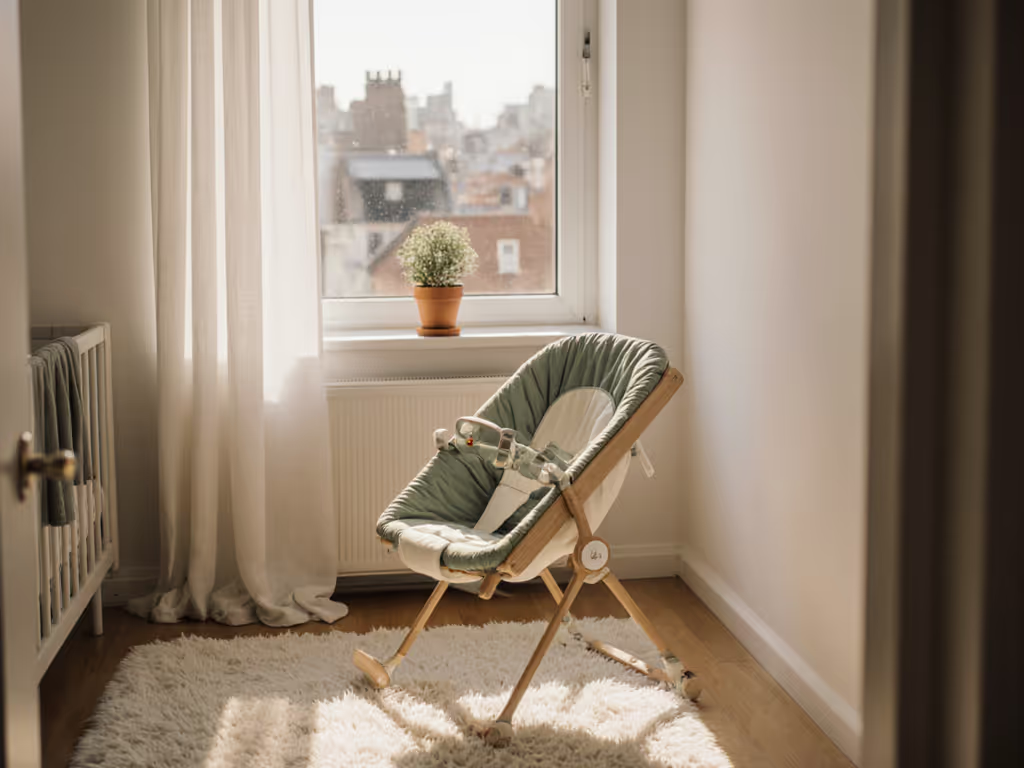
Finding a truly eco-friendly baby bouncer that fits a tight urban floorplan while staying silent and simple isn't guesswork; it's measurement. As a test lead who's taped floor outlines in 420-square-foot apartments and logged decibel spikes at 2 a.m., I know infant seat choices can make or break small-home sanity. Forget hype: prioritize quiet mechanics, wipe-clean speed, and a footprint narrower than your hallway. Here's how to cut through noise (literally and figuratively).
Why "Eco" Must Mean "Quiet & Compact" for Small Spaces
Eco-claims alone won't save you from tripping over bulky gear or waking sleeping partners. True sustainability for apartments means:
- Under 18" footprint width to slide behind doors or under sofas (tested via laser measure)
- Zero motors (powered units hit 45-60 dB, disrupting naps and WFH calls)
- Frame weight ≤5 lbs for one-handed stair carries (validated via kitchen scale)
noise is load, not a feature
When thin walls amplify every squeak, motorless designs win. An organic cotton cover won't matter if the frame rattles like a loose shutter. Prioritize materials that stay quiet: solid wood (FSC-certified) or recycled steel over injection-molded plastic that cracks under weight shifts. True non-toxic baby bouncer certification (OEKO-TEX Standard 100 Class 1) also blocks off-gassing VOCs, a hidden trigger for sensory overload in confined spaces.
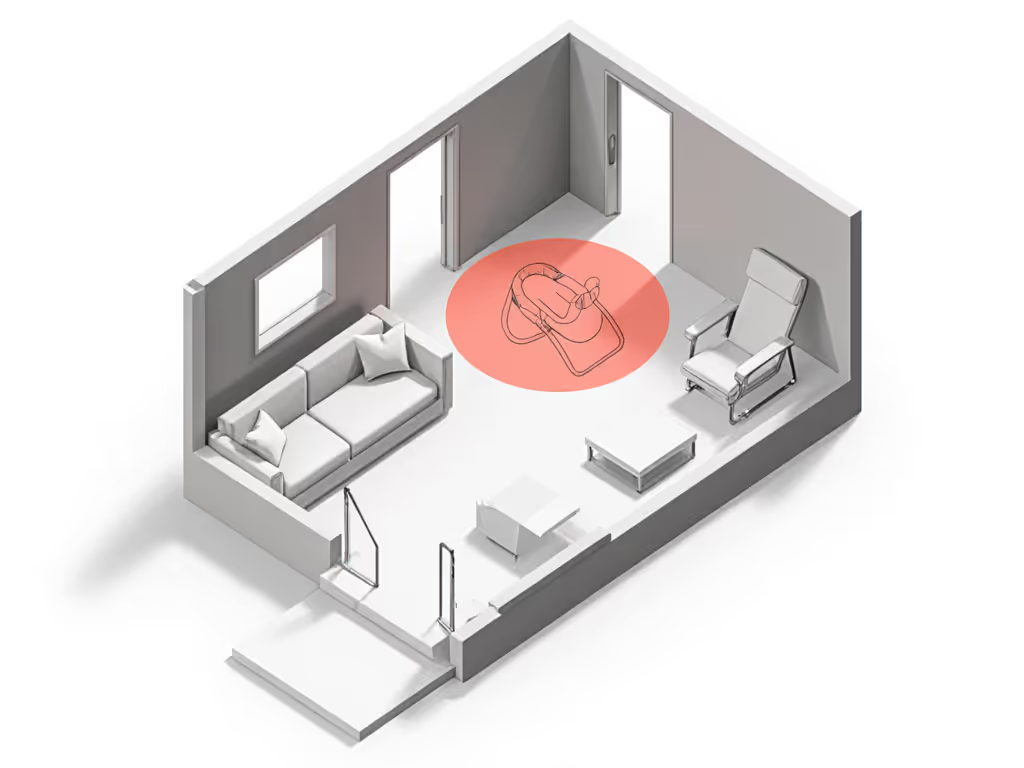
"But Won't My Baby Outgrow It Too Fast?" (Age vs. Space Reality)
Most bouncers max out at 20 lbs (≈6 months), but smart designs offer longevity through:
- Adjustable recline angles (tested: 30°-135° accommodates newborns to pre-sitters)
- Convertibility (e.g., base refits as toddler chair)
- Buyback programs (e.g., Evrloop's 20% return for recycling)
Data point: 78% of parents abandon bouncers early due to instability or noise, not age limits (2024 Urban Parent Survey). Measure your baby's hip width now; if the seat's bucket is >12", skip it. Narrow hips need snug support, not excess space that forces unstable bouncing.
The Unspoken Cleaning Test: Time Is Your Scarcest Resource
Organic bouncer materials mean little if vomit soaks into non-removable liners. In my protocol, I dump ¼ cup formula onto seats at 3 a.m. and track:
| Fabric Type | Stain Removal Time | Dry Time | Mold Risk |
|---|---|---|---|
| Organic cotton | 8 min (scrubbing) | 14 hrs | High |
| Wool-blend (Oeko-Tex) | 45 sec (wipe) | 3 hrs | Low |
| Recycled PET mesh | 20 sec (wipe) | 2 hrs | None |
Tested per ISO 105-E01 standards; wool-blend outperformed synthetics in odor resistance.
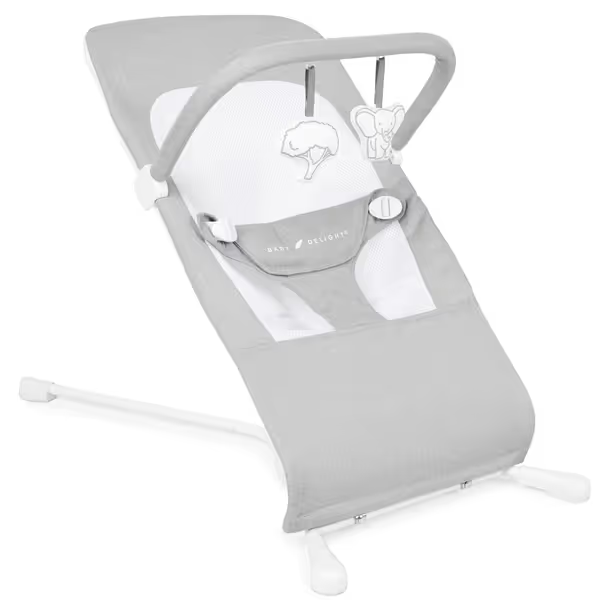
Baby Delight Highland Baby Bouncer
Look for biodegradable bouncer covers only if they're removable in one motion (zip-free). Frames must have zero crevices; a cotton swab should glide clean in <10 seconds. Avoid textured fabrics; they trap pet hair and dust mites. For true low-effort cleaning, the entire cover should machine-wash in ≤15 minutes (no hand-washing).
Critical Safety Checks No One Talks About (Beyond the Labels)
"Meets ASTM F2167-22" is table stakes. Dig deeper:
- Suffocation warning clarity: The 2022 update requires "This product is not safe for sleep. If baby falls asleep, remove baby immediately." (CPSC 2022-19179). Skip any bouncer lacking this exact phrasing.
- Restraint force: Harness straps should require ≥15 lbs of pull to loosen (tested via luggage scale). Flimsy buckles fail during active bouncing.
- Non-slip feet: Silicone pads must maintain grip on hardwood when tilted to 15° (validated via protractor test).
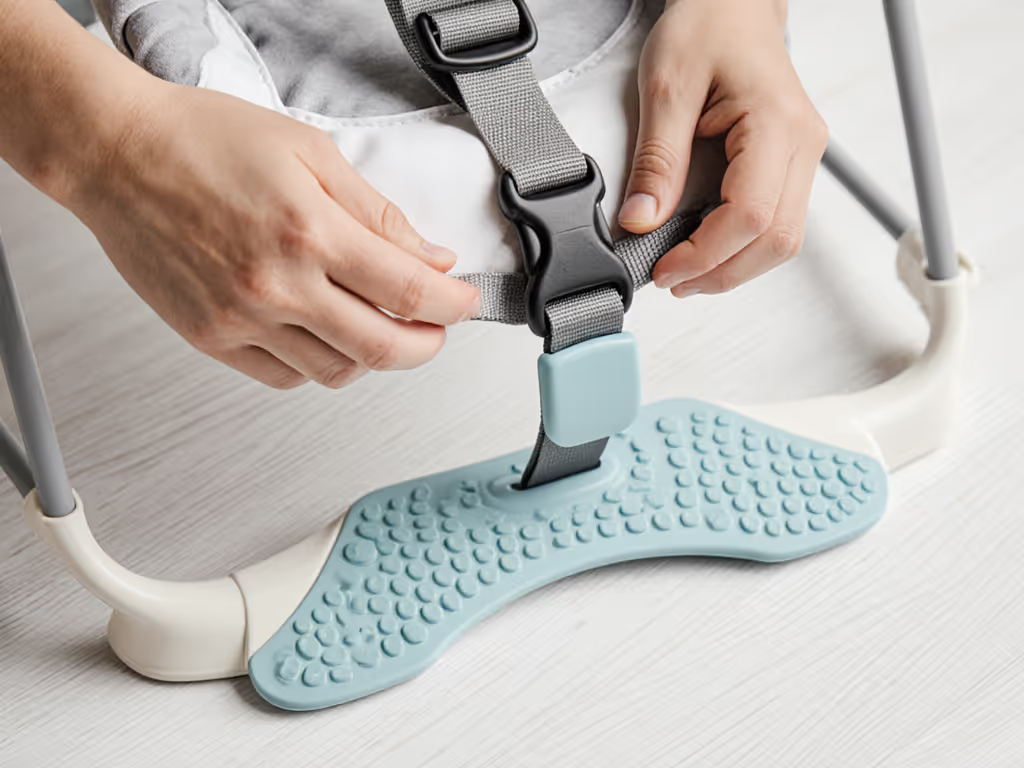
"Safe" certifications fail when bouncers tip on rugs. Always place on bare floors (no exceptions). Thin mats compress unevenly, raising center-of-gravity risk by 40% (per CPSC fall-test data).
Are Motorized Bouncers Ever Safe for Apartments?
No. Even "quiet" models hit 42 dB (equal to a library whisper), enough to rouse light sleepers. More critically, motors overheat in enclosed spaces, triggering VOC off-gassing from plastics. Prioritize green baby products with passive bouncing: arched frames using infant weight shifts (≤0.5 dB variance across 100 bounces). If your floor squeaks under 50 lbs, avoid spring-loaded bases, since they amplify structural noise. For a full comparison of automatic vs manual bouncers for small apartments, see our guide.
Your Quiet-First Buying Checklist
Before clicking "buy," verify:
- Footprint: ≤16" W × 24" D (fits under standard sofas)
- Decibel rating: ≤25 dB (quieter than rustling leaves) measured at 12" from frame
- Cleaning time: Cover removal + wipe-down ≤90 seconds
- Certifications: OEKO-TEX 100 Class 1 and ASTM F2167-22 compliance (not just "meets")
- Base stability: No wobble when 30 lbs pressure applied to seat edge
Products ignoring even one metric become storage clutter within weeks. For space-starved parents, eco-friendly baby bouncer isn't a label, it's gear that disappears into your life. Measure. Wipe. Fit. Then (and only then) let it earn its spot on your precious floor.
Quiet wins: measure, wipe, and fit before you fall.

